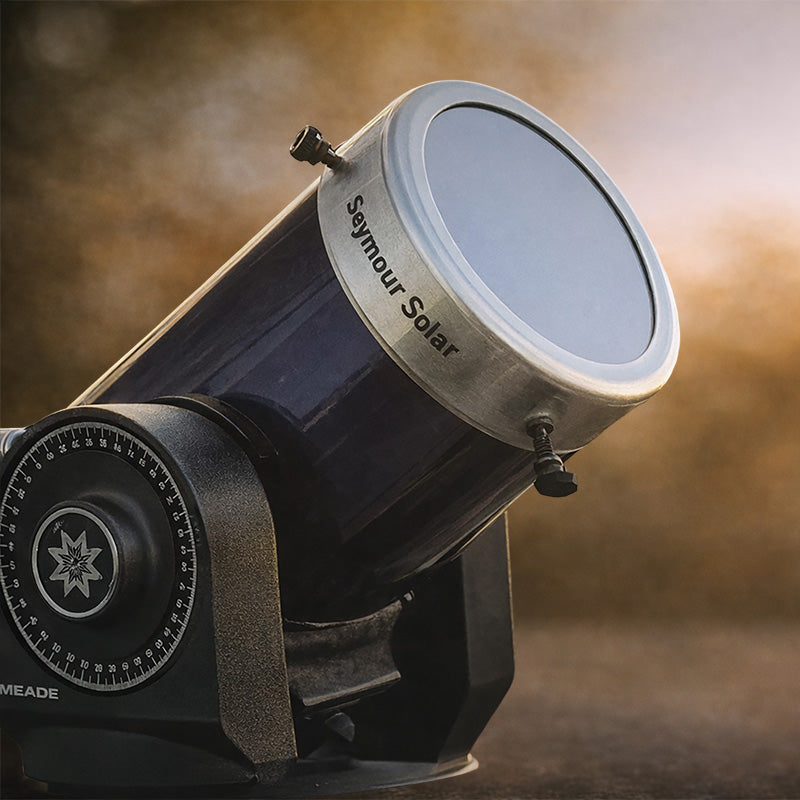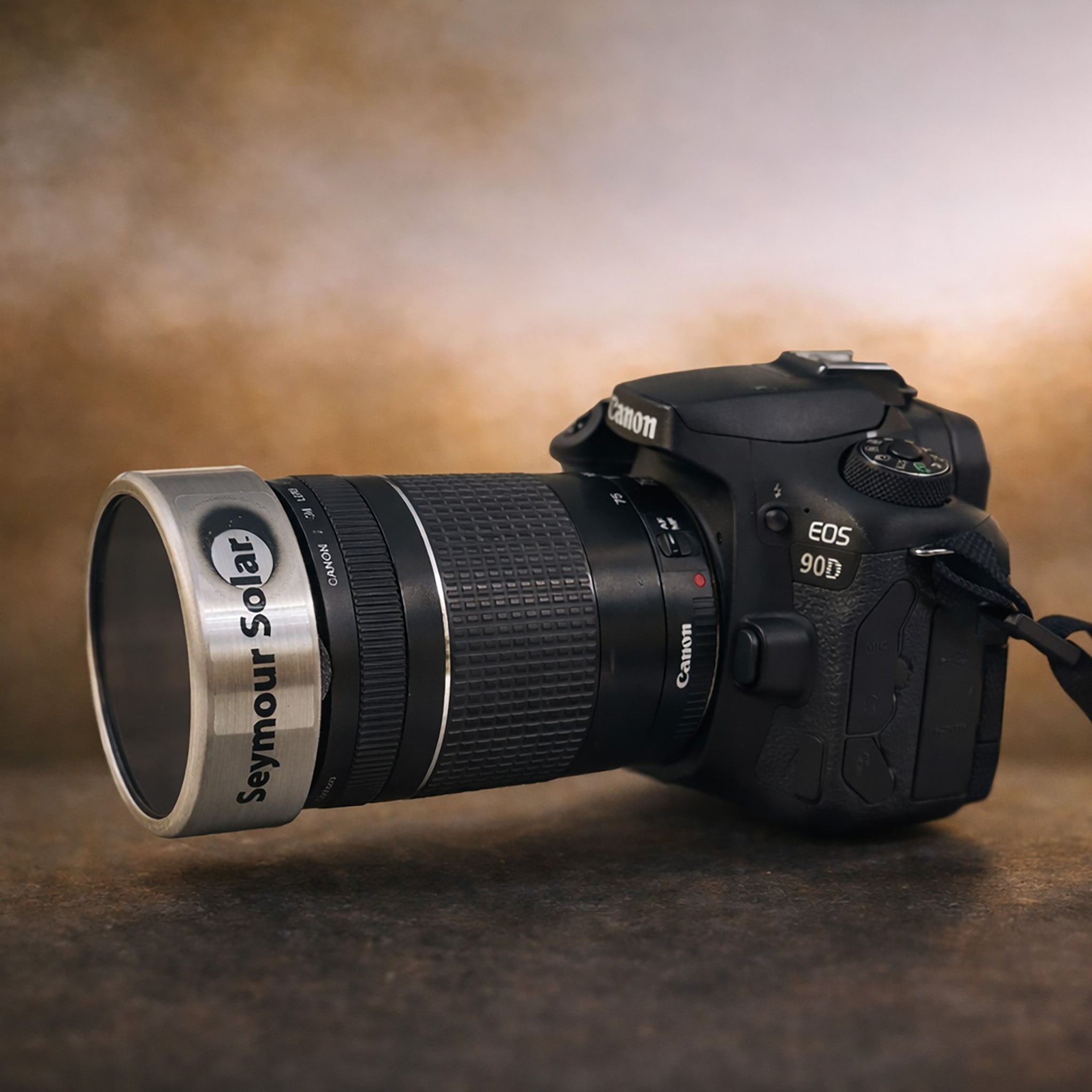Below you’ll find answers to common questions about Seymour Solar ND5 White Light filters, shipping, and product use. If you can’t find what you’re looking for, please contact us — we’re happy to help.
What is the difference between a camera ND filter and a solar ND5 filter?
Camera ND filters reduce light for long exposures but are not safe for solar viewing. A camera filter with a 10-stop ND rating blocks only a fraction of sunlight. A true ND5 solar filter from Seymour Solar blocks 99.999% of light, making it safe for direct solar observation and photography. Learn more in our Safety & Standards guide.
What is the difference between Helios Solar Glass® and Hyperion Solar Film?
Helios Solar Glass® uses titanium-coated optical glass for ultra-sharp, high-contrast imaging — ideal for photography. Hyperion Solar Film is a lightweight polymer film suitable for everyday use or travel. Both are ND5-rated and block 99.999% of sunlight for safe solar observation.
Are Seymour Solar filters safe for solar viewing?
Yes. All Seymour Solar ND5 White Light filters block 99.999% of visible, UV, and IR light, meeting the optical safety requirements of ISO 12312-2:2015. Because these filters are designed for telescopes, cameras, and binoculars (not handheld glasses), they cannot be “certified” under ISO — but they are independently tested to meet the same safety standard. See full details on our Safety & Standards page.
How do I find the right size filter?
Measure the outside diameter of your telescope, camera lens, or binocular objective — not the lens thread size. Visit our How to Measure for a Solar Filter page for a step-by-step guide.
What is your return policy?
We accept returns of unused products within 30 days of purchase. See our Warranty & Returns page for complete details and instructions.
What is your shipping policy?
Orders ship from Avon, North Carolina within 2–3 business days. We offer domestic and international delivery via USPS, UPS, and DHL. For details on delivery times, customs, and free shipping offers, view our Shipping Policy.
Need help or have a technical question not covered here? Visit our Contact Page or email info@seymoursolar.com.


